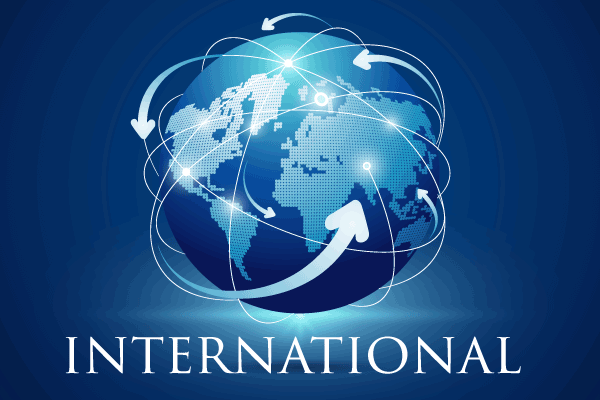 The California Chamber of Commerce is urging the California congressional delegation to support the Transatlantic Trade and Investment Partnership (TTIP).
The California Chamber of Commerce is urging the California congressional delegation to support the Transatlantic Trade and Investment Partnership (TTIP).
Europe and the United States are negotiating an agreement to further enhance the largest regional trading and investment relationship in the world.
Jobs Coast to Coast
According to a new report released August 20, congressional districts in California stand to benefit if the European Union and United States reach an ambitious trade agreement.
“Northern California and the Pacific Northwest benefit from hundreds of millions of dollars in exports and job growth, proving that Americans would be better off as a result of TTIP,” said the British Consul General San Francisco Priya Guha. “This report shows that a comprehensive trade agreement is a win for California.”
The report, published by the British government and conducted by an independent economic consultancy, concludes that the TTIP would generate significant economic gains across the United States, with net gains for every U.S. congressional district.
The report highlights that successful implementation of TTIP is estimated to increase California’s exports to the EU by an average of about 27.9% and could boost net employment by 75,250 jobs for the targeted congressional districts (1st through 53rd) in the report.
The report is based on the Centre for Economic Policy Research report “Reducing Transatlantic Barriers to Trade and Investment: An Economic Assessment,” The Trade Partnership’s CDxports database and the approach used by Ecorys to quantify nontariff measures.
The full report, TTIP and the Fifty States: Jobs and Growth from Coast to Coast, can be downloaded from gov.uk, and follows from the 2013 report, which concluded that TTIP would create 740,000 jobs across the United States.
Transatlantic Partnership
The transatlantic economic partnership is a key driver of global economic growth, trade and prosperity. It is the most integrated and longest-standing regional economic relationship in the world.
According to a 2015 study by the British Embassy in Washington, the Bertelsmann Foundation, and the Atlantic Council, the EU-U.S. relationship supports a combined 13 million jobs and nearly $3.9 trillion in investment, and represents 45% of global gross domestic product (GDP).
The transatlantic relationship defines the shape of the global economy as a whole; either the European Union or the United States also is the largest trade and investment partner for almost all other countries.
According to the World Bank, the EU market represents 508.3 million people, and has a total GDP of $18.5 trillion. The United States has 318.9 million people and a GDP of $17.4 trillion.
Total bilateral goods trade between the European Union and United States was $694.3 billion in 2014, with the United States exporting $276.1 billion worth of goods to EU member nations.
California Exports
California exports to the European Union in 2014 totaled $29.6 billion. California is one of the top exporting states to Europe, with computers, electronic products and chemical manufactures as the state’s leading export sectors to the region. EU countries purchase 17% of all California exports.
For California companies, the single market presents a stable market with huge opportunity.
A free trade agreement could increase economic output and the GDP in the long term, benefiting industries ranging from chemicals to automakers. EU-U.S. commercial links are unrivaled. Total U.S. annual investment in the EU is higher than in all of Asia, while EU investment in the U.S. far outstrips EU investment in India and China combined.
Case for Investing in Europe
During a CalChamber International Forum in May, Jake Slegers, chair of American Chambers in Europe (ACE), offered highlights of ACE’s recent publication, The Case for Investing in Europe 2015.
Slegers explained that the transatlantic partnership remains critical to the long-term health of the global economy. Although Slegers didn’t shy away from some of the recent criticism of the EU economy, he argued that Europe still remains among the most attractive long-term places in the world for business.
“Europe is not only the largest economy in the world, but what is a very important distinction, it is one of the wealthiest,” Slegers commented.
“It’s size and wealth that sets it apart from other parts of the world, and it is indeed the access to these wealthy, well-established, stable consumers that is among the primary reasons why U.S. companies venture overseas and especially enter Europe. You basically know what you’re going to get and you have a stable, well-funded environment to operate in.”
Trade Talks
Trade and investment initiatives being focused on in the ongoing trade talks between Europe and the United States to deepen the world’s largest trading relationship include:
• eliminating tariffs on transatlantic trade in goods;
• establishing compatible regulatory regimes in key sectors to address regulatory divergences that unnecessarily restrict trade;
• a bilateral investment agreement;
• liberalizing cross-border trade in services; and
• bilateral expansion of government procurement commitments.
For more information on TTIP, visit the CalChamber international portal page, www.calchamber.com/TTIP.

